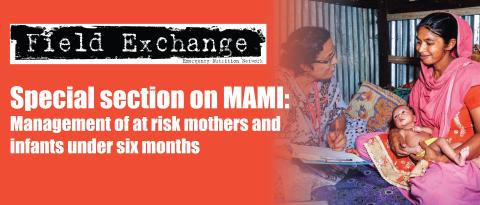The consumption of animal-sourced foods by infants in low-income settings
Research snapshot
In his “Development Horizons” blog,1 Lawrence Haddad writes about a new International Food Policy Research Institute (IFPRI) discussion paper2 that pulls together data on the food intake of 112,553 children aged 6-23 months using Demographic and Health Survey (DHS) data across 46 low- and middle-income countries since 2006. Focusing on animal-sourced foods (ASF), the paper examines infant food intake variations across countries, associations with linear growth and the sensitivity of food intake to food prices. Results show distinctive patterns of ASF consumption among children in different regions; particularly highly variable patterns of dairy consumption, low consumption of eggs and meat and – surprisingly – frequent consumption of fish in several poor regions of Africa and Asia. Multivariate models saturated with control variables demonstrate strong associations between child stunting and a generic ASF consumption indicator, as well as with fish and dairy consumption. The paper then explores why ASF consumption is low but also so variable, finding that non-tradeable ASFs (fresh milk and eggs) are a very expensive source of calories in low-income countries, and that caloric prices of these foods are strongly associated with children’s consumption patterns. The authors conclude that the strong influence of prices implies an important role for agricultural policies – in production, marketing and trade – to improve the accessibility and affordability of ASFs in poorer countries.

Lawrence emphasises the problem of sustainability revealed in this paper: how to make ASF cheaper for children in low-income countries without leaving those children with fewer natural assets to manage when they grow up. Families are currently hampered by the high price of ASFs and will sell these foods for income to buy other foods less rich in high-quality protein and micronutrients. In this high-price context, it is not easy to convince farming parents to forego income to feed their infants. He argues we need to bring the price of nutritious foods down in a sustainable way so that these foods will be eaten by those who need them most.
Endnotes
2Headey DD, Hirvonen K and Hoddinott JF. 2017. Animal sourced foods and child stunting. IFPRI Discussion Paper 1695. Washington, D.C.: International Food Policy Research Institute (IFPRI). http://ebrary.ifpri.org/cdm/ref/collection/p15738coll2/id/132232


